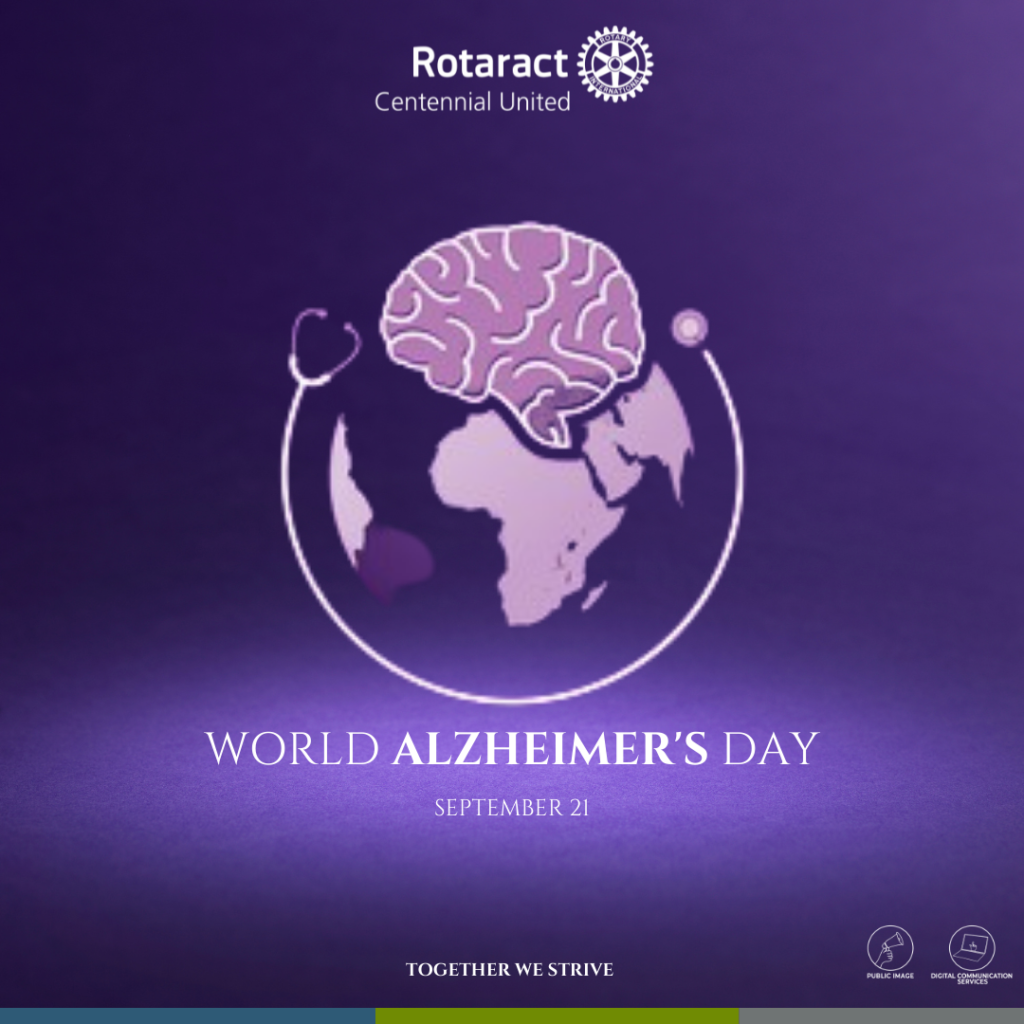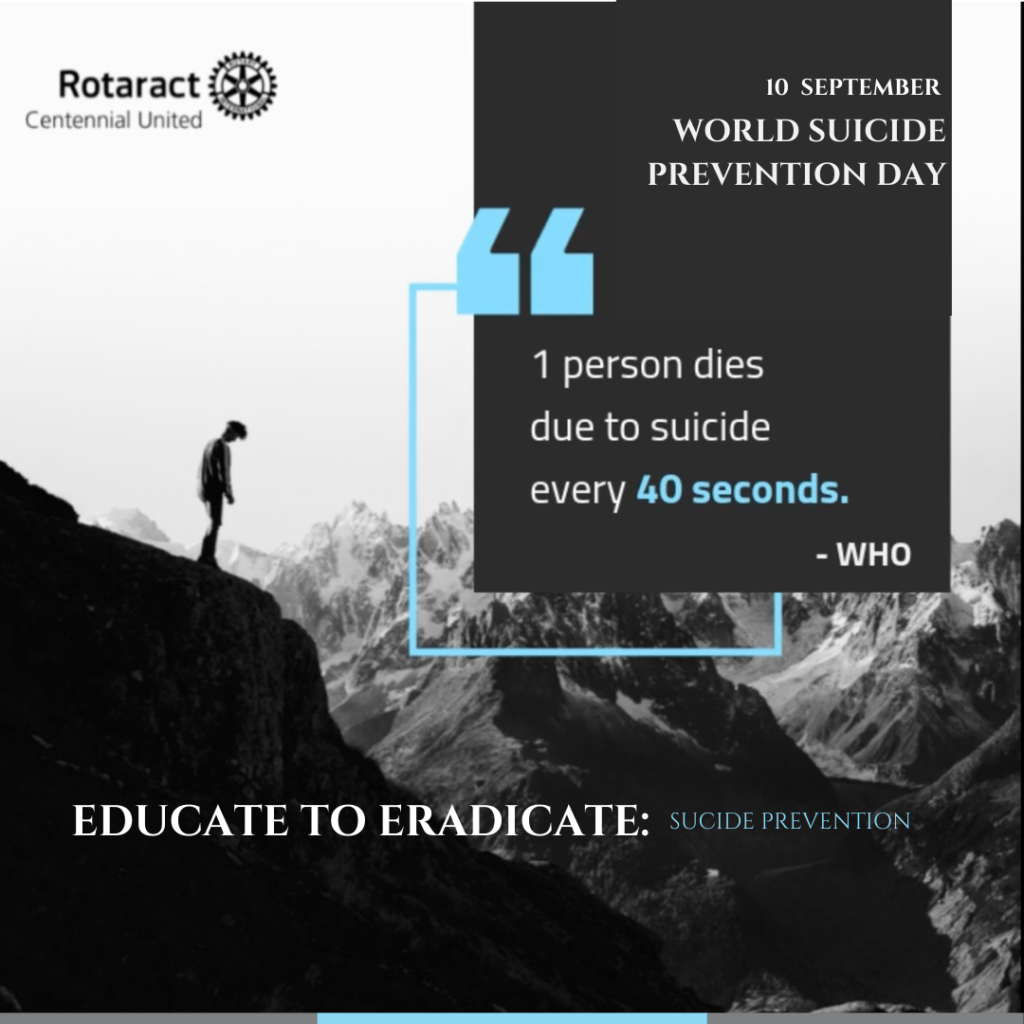Category: Educate To Eradicate
Educate to Eradicate: Alzheimer

Alzheimer’s is the most common form of dementia. Accounting for 60 to 80 per cent of dementia cases worldwide. It’s a progressive brain disorder that gradually degenerates neurons causing memory loss and other cognitive abilities severe enough to interfere with daily life
Alzheimer’s worsens over time. The symptoms of Alzheimer’s develop gradually and deteriorate over time. As critical cells die, drastic changes to your memory and personality can occur, which ultimately severely impact and interfere with daily tasks.
Alzheimer’s is not a normal part of ageing. On the contrary, the most significant known risk factor is increasing age, and the majority of people with Alzheimer’s are 65 and older.
“We remember their love when they can no longer remember.”
Few Signs and Symptoms of Alzheimer’s that one could identify
· Memory loss that disrupts daily life
· Challenges in planning or solving problems
· Difficulty completing familiar tasks
· Confusion with time or place
· Trouble understanding visual images and spatial relationships
· New problems with words in speaking or writing
· Misplacing things and losing the ability to retrace steps
· Decreased or poor judgment
· Withdrawal from work or social activities
· Changes in mood and personality
If you notice one or more signs in yourself or your loved ones, it can be challenging to know what to do. It’s natural to feel uncertain or nervous about discussing these changes with others. This may cause you to fear upsetting someone by sharing observations about differences in their abilities. However, these are significant health concerns that medical professionals should evaluate. Therefore, if you doubt whether you or your loved ones are in concern, please seek medical help. Receiving an early Alzheimer’s diagnosis may help lessen anxieties about why you are experiencing symptoms.
Alzheimer’s disease typically progresses slowly in three general stages: early, middle and late (sometimes referred to as mild, moderate and severe in a medical context). Since Alzheimer’s affects people in different ways, each person may experience symptoms or progress through the stages differently.
Early-stage Alzheimer’s (mild)
During the early stage of Alzheimer’s, a person may function independently.
Common difficulties include:
• Coming up with the right word or name.
• Remembering names when introduced to new people.
• Having difficulty performing tasks in social or work settings.
Middle-stage Alzheimer’s (moderate)
During the middle stage of Alzheimer’s, the dementia symptoms are more pronounced. the person may confuse words, get frustrated or angry, and act in unexpected ways
Symptoms, which vary from person to person, may include:
• Being forgetful of events or personal history.
• Feeling moody or withdrawn.
• Experiencing confusion about where they are or what day it is.
• Having trouble controlling their bladder and bowels.
• Showing an increased tendency to wander and become lost.
• Experiencing changes in sleep patterns, such as sleeping during the day and becoming restless at night.
Late-stage Alzheimer’s (severe)
In the final stage of the disease, Individuals may tend to lose the ability to respond to their environment, carry on a conversation, and, eventually, control movement.
At this stage, individuals may:
• Require around-the-clock assistance with daily personal care.
• Lose of awareness of recent experiences as well as of their surroundings.
• Experience changes in physical abilities, including walking, sitting and, eventually, swallowing
• Have difficulty communicating.
• Become vulnerable to infections, especially pneumonia.
There’s no cure for Alzheimer’s, but there are treatments that may change disease progression and drug and non-drug options that may help treat symptoms. Understanding available options can help individuals living with the disease, and their caregivers cope with symptoms and improve their quality of life.
Researchers believe there isn’t a single cause of Alzheimer’s disease. Instead, it likely develops from multiple factors, such as genetics, lifestyle and environment.
Resource: https://www.alz.org/
EDUCATE TO ERADICATE: Suicide Prevention

Suicide is still seen as a taboo instead of a serious health problem. More than 800 000 people are considered to be victims of suicide every year, which is one person every 40 seconds.
Suicide is a global phenomenon and occurs throughout our lifespan in different stages of our lives. Suicide is a desperate attempt to escape suffering that has become unbearable. Blinded by feelings of self-loathing, hopelessness, and isolation, a suicidal person can’t see any way of finding relief except through death. But despite their desire for the pain to stop, most suicidal people are deeply conflicted about ending their own lives. They wish there was an alternative to suicide, but they just can’t see one.
Almost everyone who attempts suicide has given some clue or warning. Therefore don’t ignore even indirect references to death or suicide from your close peers. Statements such as “You’ll be sorry when I’m gone,”
“I can’t see any way out,” no matter how casually or jokingly said may indicate suicidal thoughts.
The best way to prevent suicide is to recognise these warning signs and know how to respond if you spot them. If you believe that a friend or family member is suicidal, you can play a role in suicide prevention by pointing out the alternatives, showing that you care, and getting a doctor or psychologist involved
Ways we can start a conversation:
- “I have been feeling concerned about you lately.”
- “I wanted to check in with you because you haven’t seemed yourself lately.”
- “Recently, I’ve noticed some differences in you and wondered how you are doing.”
Questions you can ask:
- “When did you begin feeling like this?”
- “Did something happen to make you start feeling this way?”
- “How can I best support you right now?”
- “Have you thought about getting help?”
What you can say that helps:
- “You are not alone in this. I’m here for you.”
- “You may not believe it now, but the way you’re feeling will change.”
- “I may not be able to understand exactly how you feel, but I care about you and want to help.”
Source: https://www.helpguide.org
Many people do not seek treatment because they fail to recognise the signs and symptoms, or they are too embarrassed to reach out for help. The majority of the conditions can be treated, allowing people to recover and lead productive and satisfying lives. Therefore do reach out to seek professional help and talk with your family, friend or someone closer to you. Today there are many organisations dedicated to operate specific hotlines where you can reach out to them and seek help for free of charge.
Here are some organisations that you can reach out in Sri Lanka to seek help,
National Institute of Mental Health
Hotline: 1926 (24/7)
Website: https://nimh.health.gov.lk
Sri Lanka Sumithrayo
Hotline: 011 268 2535
Website: srilankasumithrayo.org
Sri Lanka Beautiful Minds
Hotline: +94 76 680 0657
CCC Foundation – Sri Lanka
Hotline: 1333



